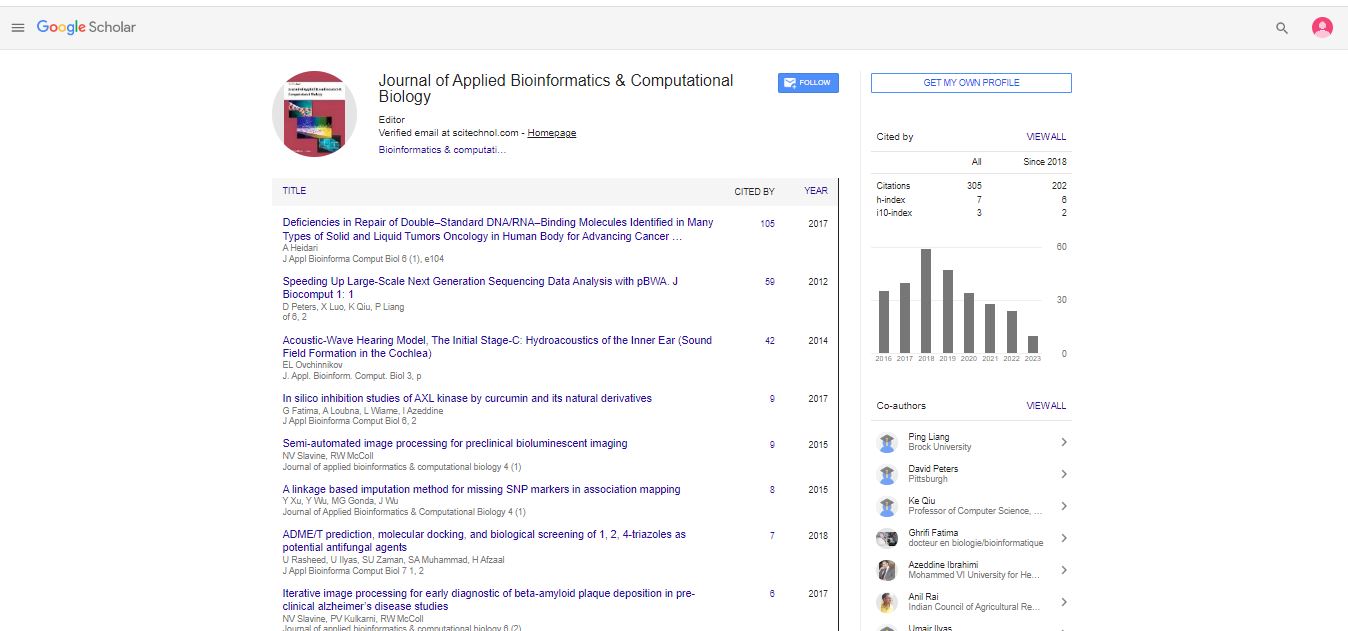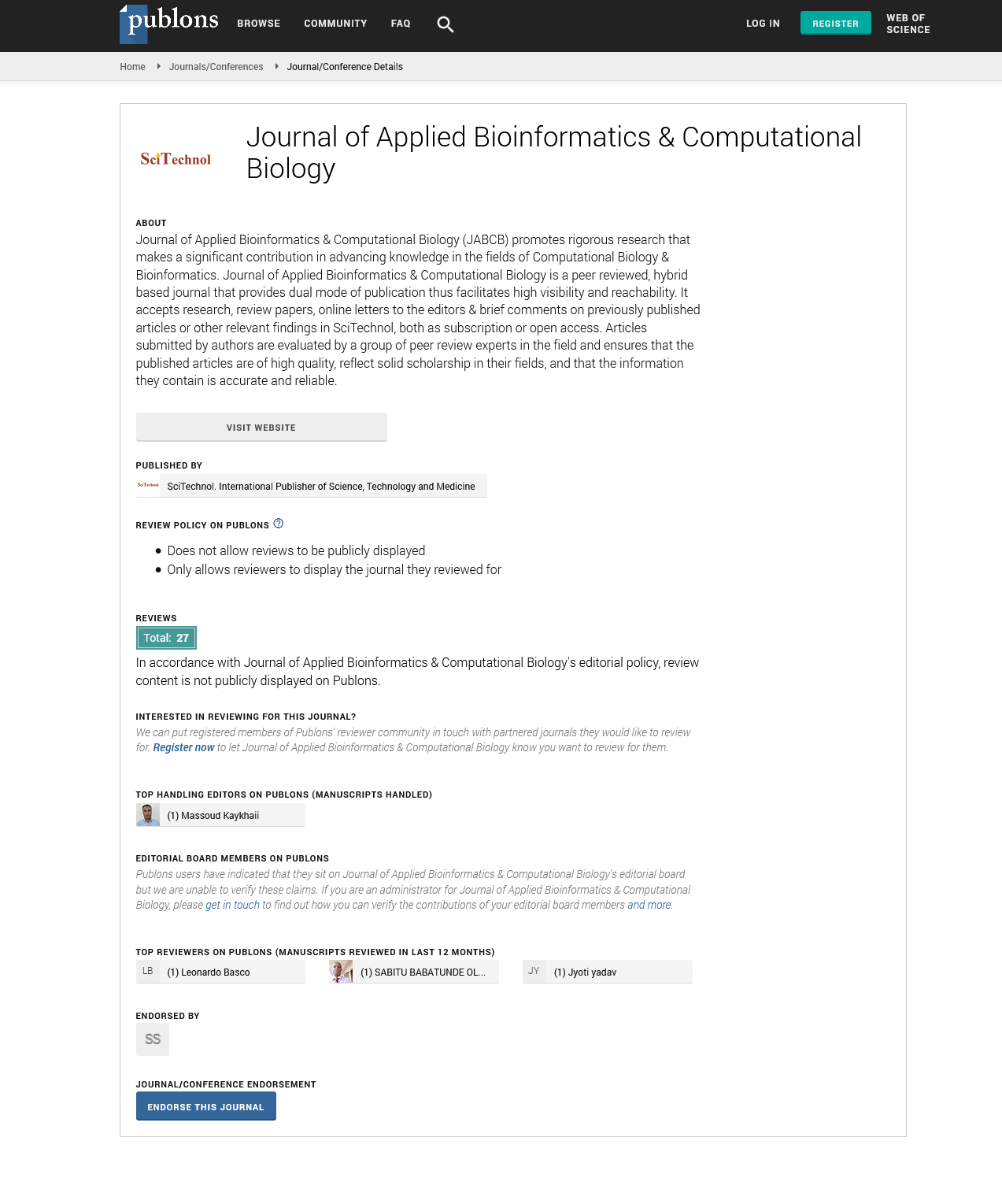Seminal plasma proteins in castrated stallions: partial results
Priscilla Nascimento Guasti, Camargo L A, Schmith R A, Papa P M, Silva L F M C andrade Jr. L R P, Mendes J P, Souza F F and Papa F O
Sao Paulo State University, Brazil
: J Appl Bioinforma Comput Biol
Abstract
Seminal plasma (SP) consists of secretions produced by testes, epididymides and accessory sex glands (AG); and contains several compounds that play important roles in sperm maturation and fertilization. The aim of this study was to investigate the expression of SP proteins after orchiectomy in stallions. Fourteen stallions were submitted to semen collection and orchiectomy. Fifteen and 30 days after the procedure, semen collection was performed again. SP samples were centrifuged and determination of total protein was performed by BCA-assay. SP proteins before (SP) and after castration (D15; D30) were analyzed by 2D-LC-MS/MS. Different proteins were identified among groups; 15 proteins in SP, 13 in D15 and 15 in D30. Castration resulted in a decrease in proteins related to reproductive process. Four proteins (KLK1E2, ALB, CLU, Equ-c1) were common to all groups and were involved in binding and catalytic activity. Catalase was identified only in castrated animals; nine proteins were identified only in D30, which were involved in immune system and metabolic process, angiogenesis and biological adhesion. In general, AG conforms to the general pattern of steroid-regulated systems as they are under androgenic control, in which hormone withdrawal may lead to differential decreases in protein expression. SP protein expression is not immediately terminated after castration, possibly due to residual levels of testosterone (under analysis). In conclusion, removal of testes influenced the expression of SP proteins and revealed exclusively expressed proteins related to the inflammatory response and tissue reconstruction; the proteins involved in reproductive process were underexpressed possibly due to decreased testosterone.
Biography
Priscilla Nascimento Guasti has a DVM from Federal Rural University of Rio de Janeiro. She obtained her Master’s Degree and PhD in Animal Reproduction from Sao Paulo State University (UNESP/Botucatu). She is currently Postdoctoral Researcher at the Sao Paulo State University. Her research interest focuses on the proteomics of equine seminal plasma, sperm membrane and epididymal fluid and its relations with the fertility
 Spanish
Spanish  Chinese
Chinese  Russian
Russian  German
German  French
French  Japanese
Japanese  Portuguese
Portuguese  Hindi
Hindi 
